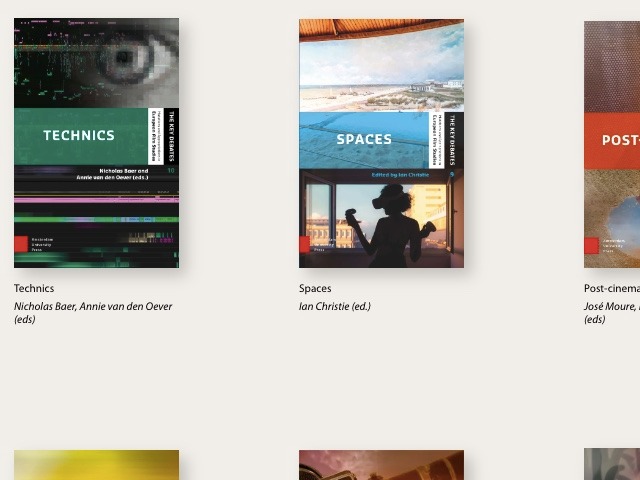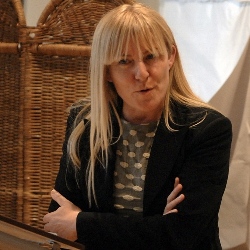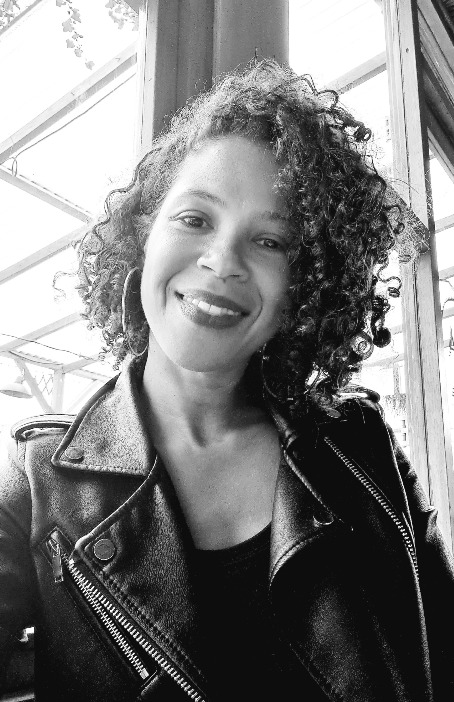Publishing an open access book series - an interview with Annie van den Oever and Maryse Elliott about the Key Debates book series by AUP
| Date: | 29 May 2024 |
| Author: | Giulia Trentacosti |

The Key Debates : Mutations and Appropriations in European Film Studies is an academic book series in film studies published by Amsterdam University Press (AUP). The series comprises ten volumes and has been fully open access since the beginning. Initially, the series was funded by NWO for six years in total.
The University of Groningen has been one of three partners that have been involved from the start, together with Birkbeck, University of London and Université Paris 1 Panthéon-Sorbonne. Recently, two new partners joined the project: University of Gothenburg and University of California, Berkeley. The next five volumes (to be published between 2024-2029) will be available OA for a relatively low fee (7000 euros per volume). The UG library OA team assisted the series editors in the negotiations. The cost of the next five volumes will be shared among the various institutions involved and the UG will support two volumes via the OA Book Fund.
We talked to series editor Annie van den Oever (Professor of Film Studies at the University of Groningen) and Maryse Elliott (Commissioning Editor at AUP) about the series.

Annie van den Oever (University of Groningen)
Can you describe how the series came to be and how you secured the funding to publish the first ten volumes open access?
The book series was initiated by us as film scholars from partner universities, that is, we became close partners making these books which we have seen from the start as a collaboration in service of our field of studies. It started off as an NWO-supported international project, initiated by film scholars from the three partner universities Paris 1, Birkbeck, and Groningen, but more recently, Berkeley and Gothenburg have joined us. Clearly, without the NWO subsidies, it would have been impossible to make these books, let alone publish them in open access - in addition to the hard copies. Over the years, the research school Arts Créations Théories Esthétique (ACTE / CNRS) of Paris 1 has provided subsidies and these were matched by our successive Rectores Magnifici since 2015.
Why did you opt for open access?
Amsterdam University Press was exploring the benefits of open access publication in a very early phase. I have been part of their Film and Media Board since 2003 and heard everything about the early experiments first hand. It has been clear from the start that the open access availability of (expensive) books in particular increases the impact of publications considerably and indeed numbers show that this is increasingly the case. Nothing in book sales compares to the open access numbers. The impact is increased too thanks to an increasing number of search systems responding to abstract and keywords offered to them. The results are in fact quite amazing by now.
What are the future plans for the series?
We as series editors are preparing new volumes for our series. We tend to refer to them as “books” as each focuses on a key problem in a coherent way. At the moment, we are selecting the topics for three more volumes - topics we deem relevant and timely -, while the volume on Spaces is just ready and the one on Technology has just been published in April 2024.
How important is the support of the UG and its OA book fund in enabling the open access publication of the new volumes?
We could not have thought about our future volumes without it! The future open access success of the book series really depends on it. In addition, I must say that this generous gesture put a chain of reactions in motion, as always: once there is funding from one partner, the other partners discuss how they can match it, in my experience. I will not speak about the download statistics, as I expect the publisher will do so, but I am sure funders may feel they really get good value for their money!

Maryse Elliott (Amsterdam University Press)
AUP publishes both open access and non-open access books. Do you notice a difference between the two in terms of usage and downloads?
Very much so! An OA book or chapter can be accessed for free, read and cited more easily upon publication and globally. Therefore, it attracts a much wider and diverse readership which translates in a higher number of downloads and citations than for books behind the pay-wall.
In that respect, The Key Debates illustrates that difference remarkably. The data we receive from our OA partners, OAPEN and JSTOR, show download metrics (either of the book pdf for OAPEN or per chapter for JSTOR) in the thousands for most volumes in the series.
For instance, Audiences (vol.3, 2012) has a number of pdf downloads above 20,000 according to OAPEN. Feminism (vol.5, 2015) and Stories (vol.7, 2018) show chapter downloads and views respectively close to 50,000 and 70,000 according to JSTOR. In comparison, the usage of non-OA titles in film studies that were published in those same years range between 500-1500. One can really say that the numbers speak for themselves here! But those impressive figures are also a testament to the series editors' dedication to inspire and educate on a global scale, and provide the state-of-the-art in film studies by curating each volume with contributions from the top scholars in the field.
What are the main obstacles that prevent authors from publishing open access?
The main one is for sure the access to funding. Authors would either need to receive a grant to do their research and thereby allocate part of it for a book publication in OA, or they would have to be part of an institution that supports OA and can provide the necessary funds or part of it. Without those conditions, it is extremely difficult for authors to pay the OA fees and unfortunately it is the situation for a majority of scholars.
Another obstacle is the perception or misinformation some scholars have about OA. They think that OA books go through different standards and procedures (like the absence of a peer-review process or a limited production level) and thus, they have the idea of a lesser quality of the book. That’s certainly not the case at AUP as we apply the same standards and procedures for both OA and non-OA titles, from editorial processes such as a rigorous peer-review, to production processes including copyediting and typesetting.
Another hurdle for some scholars is the fear around the free and wide circulation of a OA book and its implications on the use or rather mis-use of copyright material by third-parties (ie. plagiarism, commercial distribution of the book, or feeding the AI database more easily). However, most OA books are published under Creative Commons Attribution (CC BY) licenses, which provide a legal protection of the content (ie. requirement of attribution for any third-party to use part of the content).
What have been the main challenges for AUP in implementing open access?
AUP was a pioneer in implementing OA, with the partnership of OAPEN back in 2008-2010. I can’t say much about that time as I wasn’t at the press then (I started in 2017) but it is clear that with the various partners involved - authors/funding bodies/librarians/OA hosting platforms- there are even more requirements and procedures (ie. legal, administration and financial operations) that need to be met than for non-OA titles.
The challenges to ensure a streamlined dissemination of the metadata of our OA books into those various platforms are multiplied as well, as each platform has their own procedures and timelines.
How do you determine the open access fee for such a volume?
Our current fee is fixed (€ 8,950) and is among the fairest prices in the industry. As already mentioned, we are very much aware that access to funding can be very challenging for authors and we try to offer a pricing that can make it doable for them when approaching funders. However, AUP also has to align the OA pricing to its competitors (most publishers have OA fees above the €10,0000) and to adapt to the various market changes. With the increase of ebooks sales over print for non-OA titles - a general trend we have seen since COVID and across academic book publishing- and to compensate for those e-book revenues, AUP has to increase the OA fees accordingly. We can offer some discounts with partners - like UG and other institutions- when there is a guarantee of a few book publications to come in a given period.


